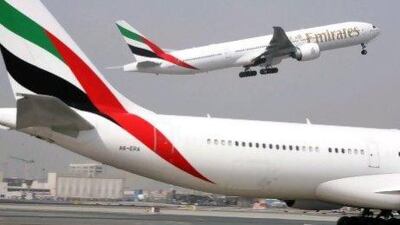The day that Steve Jobs died, Interbrand, one of the largest branding consultancies in the world, released its annual top-100 list. For the 12th consecutive year, Coca-Cola was the top brand.
Brand awareness:Read all The National coverage of these companies making their mark
Apple Learn more
Microsoft Learn more
Hewlett-Packard Learn more
IBM Learn more
Jumeirah Learn more
Emirates Learn more
But the company whose value increased the most was Apple, Jobs's legacy. The company's brand value jumped 58 per cent to US$33.4 billion (Dh122.68bn) in this year's survey. That rise put Apple in the top 10 for the first time. A combination of marketing magic, innovative products and increased customer loyalty meant a fruitful year for the company.
But no brands from the Middle East were among the 100, an issue that Michael Benson, the regional director for Interbrand, says could be remedied in the next few years.
"Many businesses around the world have recognised that the brand is the original principle for any business," he says. "It's more than a logo."
Mr Benson points out that Middle Eastern companies need to understand that the brand "lives" in all parts of a company and that it affects not just sales and marketing, but also research and developments.
"Emirates and Jumeirah are internationally recognised brands, and they have been tremendous ambassadors for brands in the region," he says.
Tarek Sultani, the managing director of Siegel+Gale Middle East, a branding consultancy, says local brands have a long way to go to make the top 100.
"There are several high-profile region brands, that, due to [the] nature of their business, with high media exposure and frequent consumer interaction, are in a position to make the list of the world's top 100," he says.
"Emirates [Airline], Qatar Airways, Al Jazeera have put in the necessary effort to grab the attention of both global consumers and the media."
But Middle Eastern companies with global aspirations should provide more than products and services, concentrating on giving customers solutions to everyday problems, Mr Sultani says. This approach then builds brand loyalty.
"Powerful brands elicit strong emotions, they are statements of intent that drive focused action amongst employees and customers alike," he says.
Although Middle Eastern companies need to do more to build their brand globally, other obstacles are also preventing companies from making the top-100 list.
Emirates Airline, which consultants argue is the region's most promising contender for the global brands list, is likely to fall short because of the complicated methodology used in valuing the companies.
Interbrand uses an equation that takes into account three points. The first is the forecast profits of a the company. It then looks at how much of that money is due to the role of brands in a particular industry. Finally,it takes into account the strength of the individual brand.
No airlines appear in the top-100 list because the role of brands in that industry is small.
Air travellers tend to opt for the cheapest flights and the best schedules rather than remaining loyal to particular airlines.
"A lot of the brands in the Middle East are new, so it will take time," says Mr Benson. "There's nothing to stop Middle East brands entering the top 100. The reason these brands are in the list is because a lot of them have been around for a very long time."
The top-10 list is dominated by technology and electronics companies this year, with IBM, Microsoft, Google, Intel, Apple and Hewlett-Packard making the cut. Technology brands were also four of the top-five risers this year.
"A strong brand does not mean you have to be known by everybody," Mr Benson says. "Strong brands deliver something a consumer needs. It's really about being very clear what you do and deliver that in everything you do."

